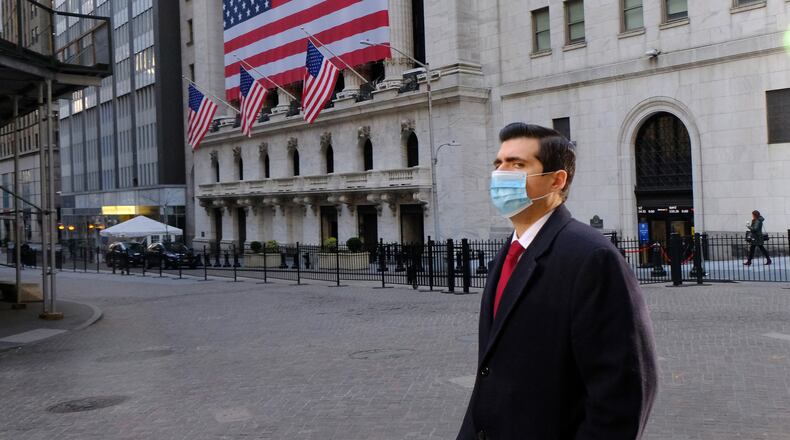The Atlanta-based owner of the New York Stock Exchange and other financial marketplaces landed record revenues and profits in recent months, fueled in part by volatility from the pandemic and oil prices.
The coronavirus has battered many publicly traded companies. But on Thursday, Intercontinental Exchange, also known as ICE, reported big gains as trading volumes surged amid heightened financial uncertainty. Revenue for the quarter rose 23% and net income grew by more than a third, increasing about $166 million from the same period a year earlier.
The company, whose chairman and chief executive officer is the husband of Georgia Sen. Kelly Loeffler, operates marketplaces tied to oil and natural gas, stocks, agricultural commodities, metals, interest rates, currencies and other assets. It also provides data to support trading and investing and help reduce risk.
Executives said the company logged strong revenue gains even in January and February, before the pandemic fully took hold. ICE’s results improved as the virus shook markets around the world and oil prices crashed, triggering more trading.
“History has demonstrated that our company does well and generates outsized profits during times of stress,” CEO Jeff Sprecher told analysts.
The company highlighted its $10 million in donations for relief activities.
With the pandemic widening, ICE closed the New York Stock Exchange in March as electronic trading continued. It was the first time in the exchange’s 228-year history that it operated without a physical trading floor.
Sprecher said the company is eager to restart the floor. But he said it will be done “in close coordination with local authorities, once the time is right.”
His wife, Loeffler, served as the chief executive officer of Bakkt, an ICE subsidiary, before Gov. Brian Kemp appointed her to the Senate. Loeffler owned 108,245 shares of ICE stock, according to a company filing in March. ICE’s share price was 1.6% lower at $89.19 in afternoon trading Thursday.
Loeffler has said she will no longer invest in the stocks of individual companies. The announcement followed criticism she faced over transactions made on her behalf involving stock in other companies shortly after senators were briefed on the growing coronavirus threat.
About the Author
Keep Reading
The Latest
Featured



